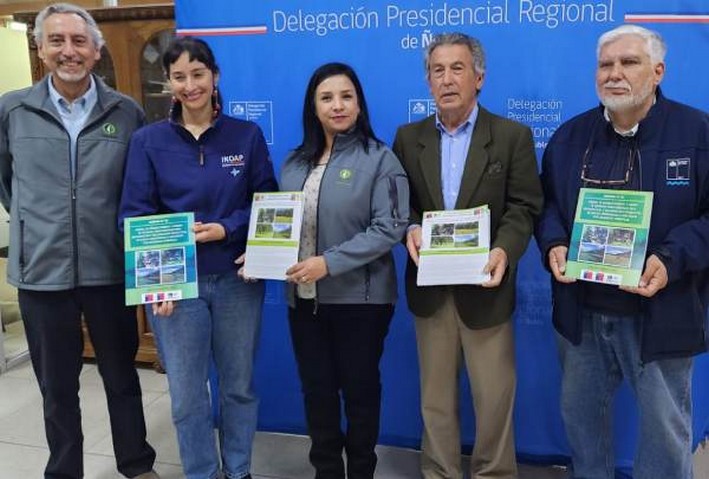The Ñuble region aims to provide integrated productive tools for sustainable development, promoting agroforestry as a production model and improving the quality of life for small-scale family farming.
The Forestry Institute (Infor), an agency under the Ministry of Agriculture, signed an agreement with the Agricultural Development Institute (Indap) to strengthen technical capacities and productive restoration in areas affected by wildfires. Within this framework, a course on agroforestry systems was held in the Prat Hall of the Ñuble Presidential Delegation to support small farmers, who already practice diversified production that includes food, livestock, and forestry products.
In this regard, the presidential delegate, Rodrigo García, explained that these types of initiatives focused on technical organizations are crucial for supporting farmers in Ñuble. "We believe agroforestry is particularly well-suited to small-scale family farming, in addition to being a sustainable solution for recovering lands affected by wildfires," García emphasized.
Meanwhile, the Regional Minister of Agriculture, Antonio Arriagada, highlighted the inter-institutional coordination of the forestry and agricultural sector to strengthen small-scale family farming and the regional production system. "The forestry sector is key to the regional GDP, and its coexistence with other productive activities, such as those in the Itata Valley, is essential both for wildfire prevention and increasing regional productivity," Arriagada stated.
Fernanda Azócar, regional director of Indap, explained that the training includes fieldwork on farms of INDAP users where the agroforestry model is being implemented. "We are committed to transitioning toward more sustainable and climate-resilient agriculture, and this agreement is part of our strategy to mitigate adverse effects, such as wildfires," Azócar said.
Karina Luengo, manager of Infor's Biobío office, emphasized the importance of this agreement to strengthen technical work in the Ñuble region. "This agreement allows us to transfer the knowledge we have developed at INFOR to the teams working directly with farmers, promoting more efficient and diversified land use under farm planning criteria," Luengo concluded.
In this way, the Ñuble region seeks to provide integrated productive tools for sustainable development, promoting agroforestry as a production model and improving the quality of life for small-scale family farming.
Source:La Discusión







Comments (0)
No comments yet. Be the first to comment!
Leave a comment